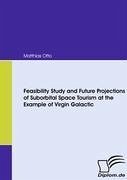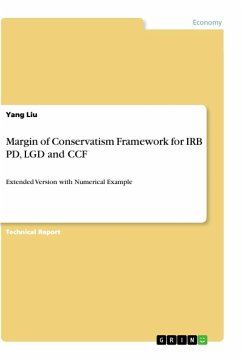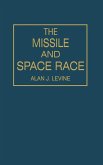The work "Feasibility Study and Future Projections of Suborbital Space Tourism at the Example of Virgin Galactic" deals with the topic space tourism, especially with the so-called suborbital space tourism ¿ a current trend of private businesses that offer commercial flights up to the edge of space. This edge of space, named "Karman Line" due to its founder Theodore von Karman, is defined by the FAI (Fédération Aéronautique Internationale) to be at an altitude of approximately 100 km. The author conducts a detailed feasibility study about this phenomenon at the example of the Anglo-American business Virgin Galactic, and sets up future projections based on the results of this study. After a general introduction into the topic (history, motives for going to space, stages of space tourism etc.) the author addresses the focal points of the feasibility study. In detail, this includes an analysis of the Virgin Galactic approach and its most promising competitors (Space Adventures, Benson Space Company, Space Access, Incredible Adventures, Rocketplane Limited, Starchaser Industries, and Blue Origin), as well as an analysis of the several spaceships and its manufacturers. Subsequently, the regulatory framework is illustrated at the example of the FAA (Federal Aviation Administration). In the end, results from market research projects are evaluated in order to explain the demand for suborbital flights. The study comes to the conclusion that the industry is still in an early pioneer phase, but nevertheless shows an enormous potential to grow.
Hinweis: Dieser Artikel kann nur an eine deutsche Lieferadresse ausgeliefert werden.
Hinweis: Dieser Artikel kann nur an eine deutsche Lieferadresse ausgeliefert werden.








